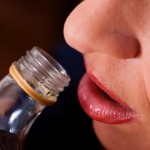
NICE have published a new evidence summary (PDF) on the problems associated with alcohol misuse, which augments the clinical guideline (PDF) that came out 2 years ago.
This is a fast moving area, so quite a significant amount of research has been produced in the last 2 years, which may have an impact on clinical practice.
Methods
The authors searched a wide range of databases and found 14 new research studies worth including (from an initial list of over 4,000), all of which had been published from 1 Mar 2012 to 8 Aug 2012.
Results
The expert advisory group working on this update decided that none of the key findings are significant enough to have any impact on the existing NICE guidance. However, the summarised the key findings as follows:
Principles of care
- Evidence suggests that involving the family in treatment is beneficial to responding to the individual needs of family members
Interventions for alcohol misuse
- Motivation enhancement therapy during detoxification may help to initiate and maintain people in aftercare inpatient treatment programmes compared with treatment as usual plus a peer delivered twelve-step facilitation intervention
- Telephone monitoring and counselling may produce better alcohol use outcomes for relapse prevention than telephone counselling and ‘treatment as usual’
- Using symptom-triggered benzodiazepines in an outpatient setting appears no more effective in reducing alcohol withdrawal symptoms than a fixed dosage regimen, and concerns remain about the safety of high dosage and potential for benzodiazepine misuse in largely unsupervised settings
- The cost of treatment for alcohol dependent people after withdrawal may be offset by a reduction in social costs
- Quetiapine does not appear to be effective at reducing alcohol consumption in alcohol dependent people
- Baclofen does not appear to be effective in the treatment of alcohol withdrawal
- Limited evidence suggests that topiramate may be tolerable at 200 mg in reducing drinking levels in alcohol dependent people. Further research is needed
- Limited evidence suggests that sertraline may have a short-term treatment effect for relapse prevention on late-onset alcohol dependent people who have the LL (high expression) allele of the 5-HTTLPR serotonin transporter gene polymorphism
- Limited evidence suggests that ondansetron may be effective in maintaining abstinence in alcohol dependent people who have LL or TT alleles of the 5-HTTLPR and rs1042173 serotonin transporter gene polymorphisms
- Evidence of the effect of gamma-hydroxybutyrate in alcohol withdrawal is insufficient and concerns exist about its potential for dependence and misuse
- Psychological programmes may be effective for patients with alcohol misuse and psychiatric comorbidity
- Limited evidence suggests that antidepressants may be effective for the treatment of depression in patients who have comorbid alcohol use disorders. However, some selective serotonin reuptake inhibitors may not be effective. Further research is needed.
Uncertainties
This update also flagged up two new treatment uncertainties that were added to the DUETs website:
Principles of care
- Interventions with families of alcohol misusers
Interventions for alcohol misuse
- Topiramate for the treatment of alcohol dependence
Conclusions
So the bottom line here is that no major research has been published in the last couple of years that will change the recommendations in current NICE guidance.
However, the new evidence found in this update will be of interest to those working in the field of alcohol misuse. Particularly the research relating to treatments that do not currently have UK approval to be used as interventions for harmful drinking.
Links
Alcohol use disorders: harmful drinking and alcohol dependence (PDF). NICE, Evidence Update, Jan 2013.
Alcohol use disorders: harmful drinking and alcohol dependence (PDF). NICE CG115, 28 Feb 2011.
Alcohol dependence and harmful alcohol use quality standard. NICE QS11, Aug 2011.
Alcohol-use disorders: physical complications (PDF). NICE, Evidence Update, Mar 2012.

now I know why I’ve gone off alcohol since taking it for #migraine HT @Mental_Elf #topiramate used for problem drinking http://t.co/1TRNAZg8
@dr_fi @Mental_Elf interesting! I reacted so differently to drink when I first started on it…has settled a bit now